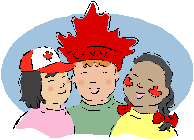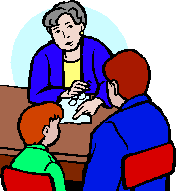|

|
 |
The Effect of
Divorce on the Family |
| Divorce involves change for both parents and children.
The effects of divorce on children are related more to the previous
situation and the subsequent events that affect the child than on the
divorce itself. Parents are sometimes distant; other times they
may be more possessive of their children. Children are affected if
they perceive abandonment by one parent. If parents use their
children as part of their conflict, the children suffer. |
 |
The Effect of
Divorce on the Children |
| Children are usually ashamed of
the divorce and feel rejected because of a parent's departure.
They are the ones who suffer the most at the time of the divorce and
they become at risk for success. If the parents continue to fight
or burden their children with too mush responsibility, then children are
likely to suffer depression and interrupted development.
Especially during the first year of divorce, children experience not
only change and feelings of loss, but also the disorganization and
reorganization of their parents' lives. Boys, more than girls,
show early native reactions by being more quarrelsome and acting out.
They externalize their change and loss.
Excellent Website to help children understand Divorce
http://pbskids.org/itsmylife/family/divorce/ |
 |
The Effect of
Divorce over Time |
| The initial effect of divorce is reduced
over time. If the situation at home is an improvement, children
can be successful in either a single-parent family or a remarriage.
Children adjust to it and their risk at school is much lower a year
after the divorce than immediately following it. |
 |
Conditions
Affecting Child Adjustment in Divorce |
- Relationships of parents following divorce. Are the
parents amicable, or do they use their children as ammunition
against one another?
- Separation from a parent who is significant to the child.
- The parenting skills and relationship of the children with the
custodial parent.
- The relationship of children to the nonresidential parent.
- Economics and Financial ability to keep a standard living.
|
 |
Insight for
Teachers and Administrators |
- Children do better following a divorce if they are able to have
positive relationships with both parents unless the parents are
extremely hostile toward on another.
- Parent hostility versus parent cooperation causes major problems
for children who may be buffeted between the two parents.
- It is natural for children will bring their distress with them
to the classroom.
- During a divorce, the school may be a child's only place of
structure, guidance, and security.
- Do not single children out as if there were something different
about them because a divorce has occurred in their family.
- Children often yearn for their parents to reconcile and may
blame themselves for the divorce. Children may respond to
divorce by externalizing or internalizing problems or experiencing
cognitive deficits. Children who are unhappy in their life
situations, whether a divorce or not, tend to internalize their
concerns and/or become less successful in school.
- Keep positive expectations for the children. Be kind, but
encourage them to keep up with their homework.
- Find ways that the child can co
- ntribute to the class. Use special projects or activities
that may interest the child.
- Make phone calls to both parents to share a school activity or a
positive contribution the child has made to the class.
|
 |
Tips for
Parents |
| Every child is unique. Every situation
is different. There is no perfect answer. Children need their
parents; all of them.
However many there are. It's a well-known
statistic that children of absent or inattentive fathers are at higher
risk for eating disorders. Recent studies show that 70 percent of teens
who attempt suicide have divorced parents. It's accepted that children
in single-parent homes are at much greater risk of all sorts of
behavioral problems. And it's understood by anyone who deals with
children that when there are problems at home, there are inevitably
problems at school or at daycare.
Children need their parents. And that's why
it's so desperately important for those parents who need
to divorce, to divorce well -- for their own sake and especially for the
sake of their children.
But here are a few links to help you get some advice and hopefully
they will answer some very difficult questions:
Brochure Created for on Divorce
Mr. Liesinger's Brochure
Ms. Trewatha Brochure |
 |
Resources
|
|
http://www.saferchild.org/divorce.htm
Berger, Eugenia. Parents as Partners in Education: Families
and Schools Working Together. 6th ed.
2004. Pearson Prentice Hall, New
Jersey. |
|
|